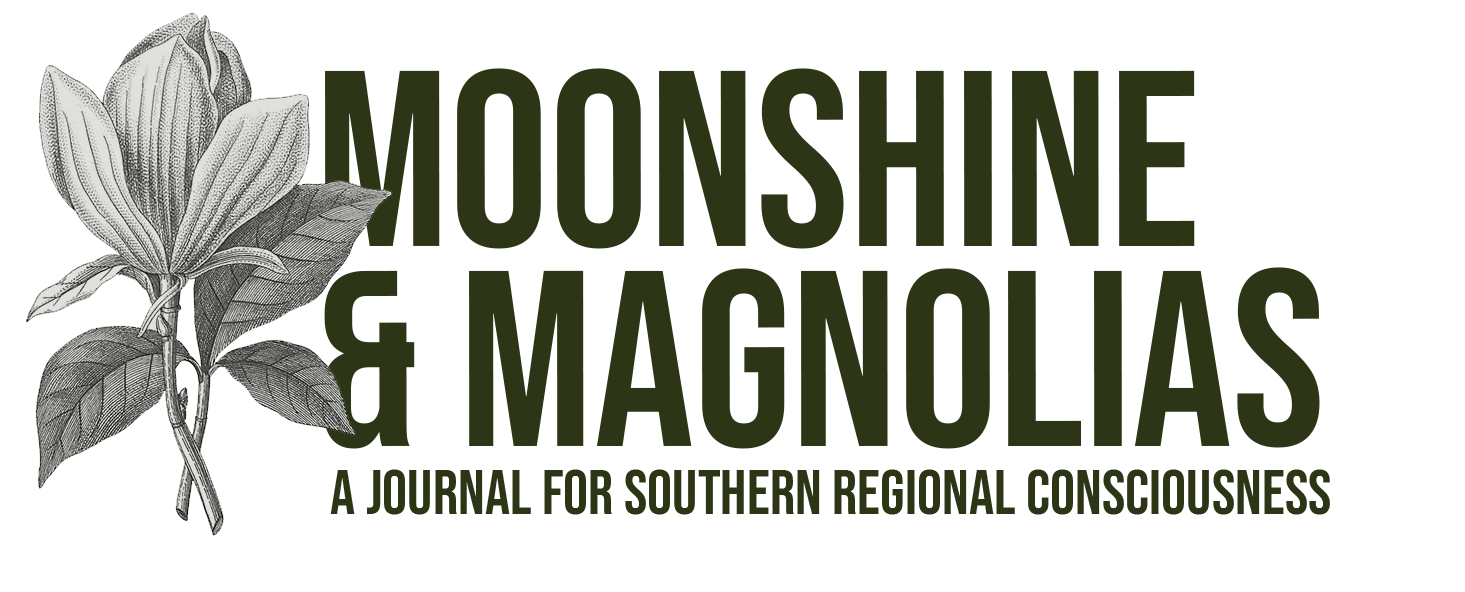Local Color
For the last several weeks, the Southern skies have been the color of dirty cotton. Hot rain poured from the heavens like buckets of seraphic tears. Wet leaves rode the wind and attached themselves to anything not moving fast enough, like old barns and old men’s trucks. But now the rains have come and gone. Summer has done its work. The corn is shucked. The field peas are in the freezer, stacked high in piles of ziplock bags. The cabinets are full of blackberry jelly and muscadine jam. The high heat and humidity of the Dog Days are giving way to early morning chills and cool evening breezes. The weather is now perfect for “porch sittin.’”
I sat outside this morning rubbing a little dog’s belly and listening to the rooster wake up the sun (and the cantankerous neighbor lady), and waited for it to peek over the hay fields to the east as it is wont to do. Lately, the golden glow has been replaced by a warm blush of pink, like a schoolgirl’s cheek at the site of her first kiss.
The leaves waving from the old oak trees are more expressive too. Those green leaves are becoming bespeckled things. Soon they will become little mirrors of sunlight, displaying various shades of red and amber before draping themselves in a gilded shroud. I suspect they know that they are dying, but they want to go out in style. Few things are more colorful, more expressive than a Southern Fall.
Except maybe the way that Southerners tend to talk about such things. The real color and warmth found here is not in the landscape or the sky but in our language, the way we lean words against one another. Our grammar may not be all that good, but we are a well-spoken people. Our necks may be red, our collars may be blue, but our words take on every hue.
What we have in spades are “sayings,” aphorisms, idioms, metaphors. My people are linguistic artists who know how to paint spoken pictures and hang them just right on the air.
When something is true, it is “the gospel truth,” and when it isn’t it is a “fish story.” Nothing is ever as bland as “factual” or “disinformation” around here.
If an honest man tells you a rooster dips snuff, look under his wing and you’ll find a can. But the other kind of man, the shifty-eyed sort, well, “he may be alright, but I wouldn’t swap knives with him.”
You won’t catch any crappie on a “blue bird day,” but you almost always will when it’s “rainy with a chance of fish.”
A snooty woman is “stuck up higher than a light pole.” However, a friendly one will “talk the horns off of a billy goat.”
Having a good day? You’re “finer than frog’s hair.” A hard day? You’ve been “rode hard and put away wet.”
Ugly not only describes an unbecoming appearance, “ugly as a mud fence,” but also describes an unbecoming attitude, “Don’t be ugly to your sister.”
Something can be “as high as a cat’s back,” or “as low as a snake’s belly in a wagon wheel rut.”
Mammas can get “as mad as an old wet hen,” or “as happy as a dead pig in sunshine.”
If someone says a man “sure knows how to lean on a shovel,” they aren’t paying him a compliment. But if they say, “he’s quite a hand,” they are.
Down here we have such notable personages as Sam Hill, John and Cooter Brown, and some fella named Carter who had a lot of little pills. We have high cotton, tits on boars, hills of beans, doohickies, and come-to-Jesus-meetings. We have druthers, notions, hissy fits, conniptions, and get up to foolishment. I suspect they have those things elsewhere, they just lack the proper taxonomy for them.
Last Sunday my grandmother said, “it’s been hotter than a sock full of squirrels. I’m ready for First Frost.” She said she was looking forward to the Fall so that she could head to the mountains and see how the Good Lord painted the trees this year. But for me, I don’t have to go farther than the dinner table to find a bit of color.
